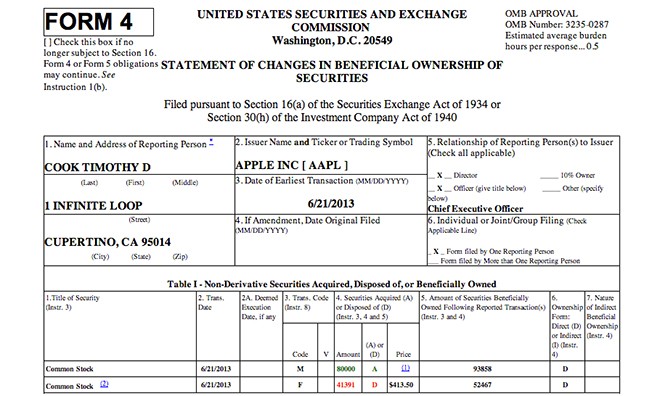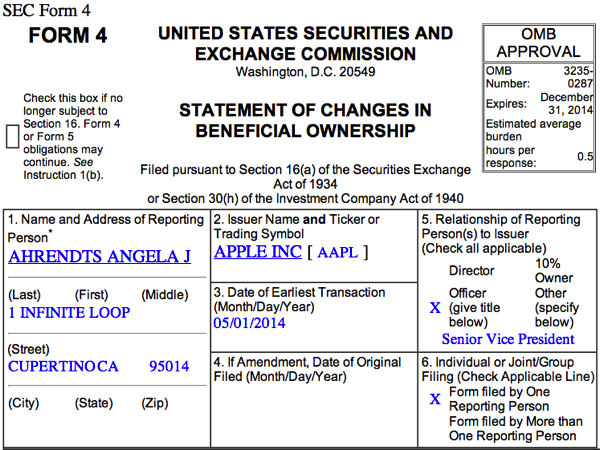Restricted stock units_1
Post on: 21 Май, 2015 No Comment

Posts Tagged restricted stock units
Could SEC Rule 144 Screw Facebooks Rank and File?
[Ed note: this post is nothing more than me asking questions based on what I know about tax…and what I DONT know about SEC law. If Im charging down an incorrect path or if you happen to be an SEC attorney please let me know.]
As Facebook grew during its formative years, to avoid reaching a shareholder limit that would have forced them to report their financial statements as if they were a public company, the tech giant switched from issuing stock options to Restricted Stock Units (RSUs) to compensate its employees. As of December 2011, Facebook had 378,772,184 shares of RSUs outstanding.
The granting of restricted stock units as opposed to the granting of restricted stock does NOT involve the issuance of actual shares of stock at the time of grant. Rather, after the recipient employee reaches certain pre-determined vesting bogeys, either shares of company stock or cash can be used to settle the employees right to receive the value of the RSUs. For the remainder of this post, lets assume all Facebook RSUs will indeed be settled with Facebook stock.
This much Im certain of: under I.R.C. § 83, when the employee vests in the underlying RSUs and actual shares are issued, the employee recognizes ordinary income equal to the value of the shares less any amounts paid by the employee for the RSUs. In order for an employee to vest in the RSU, the Facebook S-1 provides:
Pre-2011 RSUs granted under our 2005 Stock Plan vest upon the satisfaction of both a service condition and a liquidity condition. The service condition for the majority of these awards is satisfied over four years. The liquidity condition is satisfied upon the occurrence of a qualifying event, defined as a change of control transaction or six months following the completion of our initial public offering.
Assuming most employees have met the service condition (and the S-1 seems to indicate they have), all employees who received pre-2011 RSUs will vest and receive their Facebook stock six months after the IPO date of Friday, May 18th. Each employee will recognize compensation income at that time equal to the FMV of the shares less any amount paid for the stock.
Heres where my SEC knowledge may be leading me astray.
Under Rule 144, once Facebook has been subject to public company reporting requirements for at least 90 days, any person who is not deemed to have been an affiliate for purposes of SEC law at any time during the 90 days preceding a sale and who has beneficially owned the shares proposed to be sold for at least six months. is free to sell those shares. The Facebook S-1 further provides:
The shares of common stock that were not offered and sold in our initial public offering as well as shares underlying outstanding RSUs will be upon issuance, “restricted securities,” as that term is defined in Rule 144 under the Securities Act. These restricted securities are eligible for public sale only if they are registered under the Securities Act or if they qualify for an exemption from registration under Rule 144 or Rule 701 under the Securities Act, which are summarized below.

Putting this all together, does this mean that the RSUs issued to employees upon vesting six months after the IPO date cannot be sold for another six months?
This is an important question, because based on my understanding of the relevant case law and underlying congressional reports, the Rule 144 restriction is not considered a restriction on transferability worthy of postponing the recognition of income under Section 83. As a result, the employees would be required to recognize compensation income upon receipt of the stock on November 18, 2012, even though they cannot sell it pursuant to Rule 144 for an additional six months. This would lead to two problems:
1. The employees would not be able to sell the stock in order to pay the tax on the compensation income recognized upon vesting. It appears this concern is being mitigated by Facebooks decision to net-settle the RSUs, selling enough stock to cover the employees tax burden and only issuing the net shares to the employee.
2. There is a risk that the value of the stock on the vesting date will exceed the value six months later, when the shares can be freely traded. If that is the case, the employees will have recognized ordinary income to the extent of the higher value, with an offsetting capital loss which may provide no immediate tax benefit or only a 15% benefit by offsetting long-term capital gains.
Understand, I dont think this is whats going to happen, but I cant be certain. It appears based on discussions on the Internet and when have anonymous web comments ever led us astray? that the vested RSUs will be free to be sold immediately upon vesting in November, so the issues I identified may be completely moot. Its completely dependent on the application of Rule 144, which is where my comfort level dissipates.
So please, if you can add some clarity to the topic, do so in the comments.














